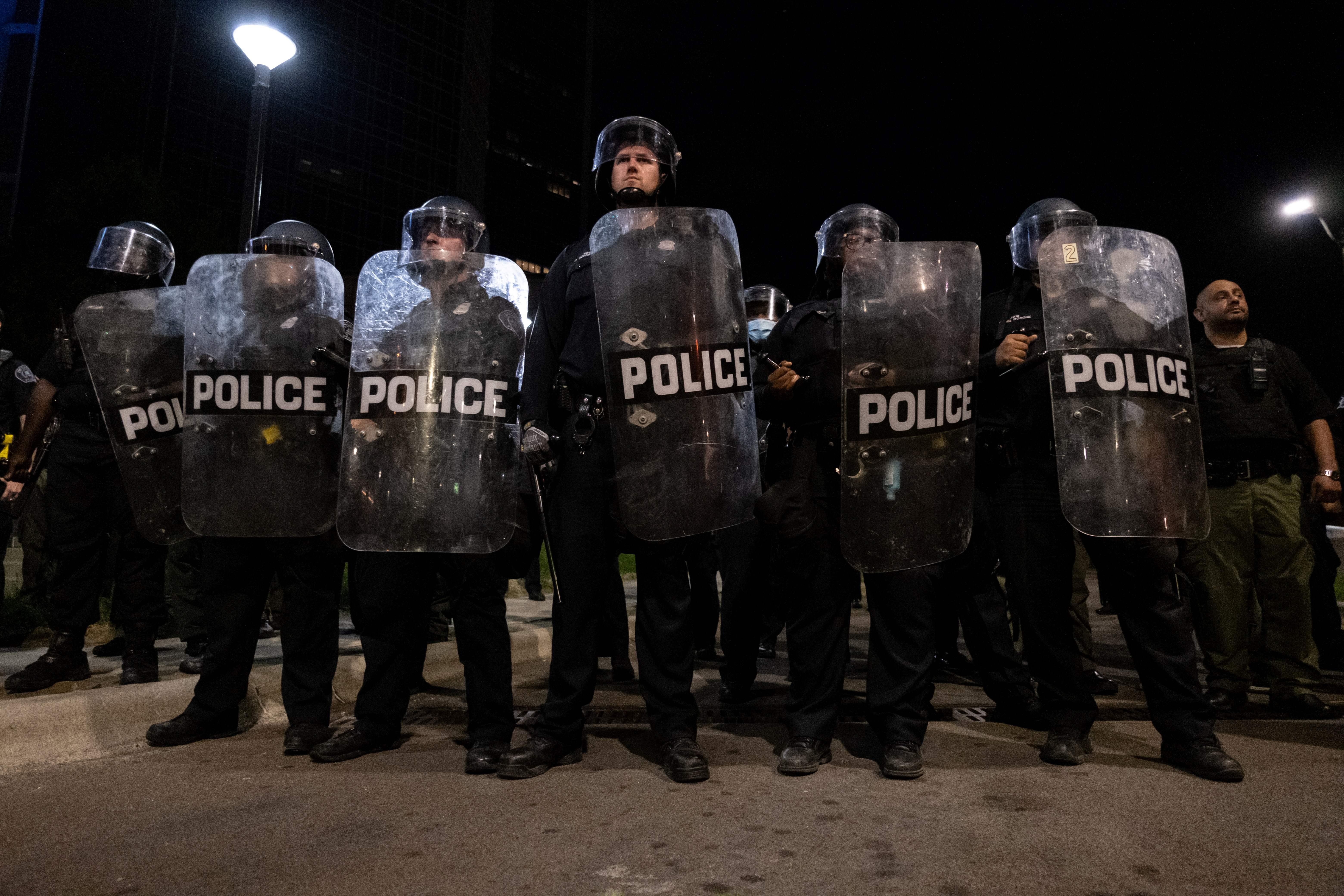The Supreme Court took the first steps toward overruling Miranda v. Arizona on Thursday, declaring that suspects have no constitutional right to receive the famed Miranda warnings when they’re taken into custody. Its 6–3 decision in Vega v. Tekoh ensures that many suspects who are denied these warnings will have no legal recourse, even if they are wrongly convicted. Justice Sam Alito’s opinion for the court lays the groundwork for a more direct assault on Miranda itself, barely concealing the conservative majority’s contempt for the decision.
Vega revolves around the Fifth Amendment’s right against self-incrimination, which bars a defendant from being “compelled in any criminal case to be a witness against himself.” For much of American history—and especially in the Jim Crow South—law enforcement officers coerced confessions from suspects using intimidation or outright violence. (These confessions were frequently false.) Courts were supposed to assess whether confessions were “voluntary,” but the secrecy of interrogation rooms, combined with the massive power imbalance between police and suspects, made this task impossible. In 1966, the Supreme Court tried to resolve this problem with Miranda, which required police to warn suspects that they have the right to remain silent and to access an attorney. The majority hoped that suspects would quickly acquire counsel, who would ensure that law enforcement did not coerce (or beat) a confession out of their client.
Over the last few decades, the Supreme Court has steadily retrenched from Miranda’s promise while purporting to uphold its bottom line. Most famously, in 2000’s Dickerson v. U.S., Chief Justice William Rehnquist reaffirmed the ruling, explaining that it had become “part of our national culture.” But Rehnquist called Miranda a “constitutional rule,” a prophylactic measure that demands more than the Fifth Amendment actually requires. As Justice Antonin Scalia correctly pointed out in his Dickerson dissent, this ruling creates a puzzle: If Miranda warnings are not a constitutional right, where does the Supreme Court get the authority to demand them?
SCOTUS has danced around this question for more than two decades, but Vega put it front and center. Terence Tekoh alleges that he was interrogated in police custody without receiving Miranda warnings. During his interrogation, he wrote a confession that was used against him at trial (though he was acquitted). Tekoh filed suit under a law that allows individuals to sue in federal court when the police violate “a right secured by the Constitution.” He alleged that law enforcement infringed on his Miranda rights by soliciting and submitting an un-Mirandized confession.
Alito, writing for the conservative justices, rejected this argument in a brusque opinion that bristles with contempt for Miranda. “A violation of Miranda,” he declared, “is not itself a violation of the Fifth Amendment.” It is, rather, a “judicially crafted rule,” and before expanding or contracting it, the court must weigh “the benefits and costs” of altering its scope. Here, the “balance of interests” leans against extending Miranda: Doing so, Alito averred, would require a federal court to adjudicate a question “that had already been decided by a state court,” creating “unnecessary friction” between state and federal judiciaries.
The most important part of Alito’s opinion, however, isn’t this analysis; it’s a drive-by attack on Miranda and Dickerson, much of which is relegated to a footnote. The assertion that SCOTUS can impose “prophylactic rules” on states and federal courts, the justice wrote, is “a bold and controversial claim of authority.” Whether the Supreme Court even “has the authority to create constitutionally based prophylactic rules that bind both federal and state courts,” he continued, “has been the subject of debate among jurists and commentators.” For support, he cited various critics of Miranda—including Scalia’s dissent in Dickerson. Alito then added ominously that whatever the merits of Miranda, “for the purpose of deciding this case, we follow its rationale.”
The justice couldn’t be much clearer: He and his conservative colleagues think Miranda and Dickerson are wrong but aren’t yet willing to spend the political capital necessary to overrule them. They may have feared yet another fiery dissent from Justice Elena Kagan, who laid out the stakes bluntly at oral arguments: Eradicating Miranda warnings, she warned from the bench, would undermine “the legitimacy of the court” in a “profound sense.”
This rhetoric was notably absent from Kagan’s actual dissent in Vega. The justice did not even respond to Alito’s anti-Miranda language, preferring to pretend as though it did not exist. Instead, she explained why this “constitutional rule” gives suspects “a correlative right” to be “tried without the prosecutor using his un-Mirandized statement.” Put differently, a suspect has a “legally enforceable entitlement—in a word, a right—to have his confession excluded.” When that right is violated, the victim should be allowed to file suit.
By leaving Miranda on the books (for now), Vega still requires courts to suppress un-Mirandized statements during trial. As Kagan noted, though, sometimes “such a statement will not be suppressed. And sometimes, as a result, a defendant will be wrongly convicted and spend years in prison.” Eventually, the defendant may get his conviction reversed. But thanks to Thursday’s decision, he will have no remedy “for all the harm he has suffered.”
Hollowing out rights by depriving victims of remedies is par for the course at this Supreme Court. So is inserting ominous criticisms of precedent in the nooks and crannies of an opinion, minimizing immediate public backlash while planting the seeds for a future, more radical decision. In Vega, Alito checks both boxes. It’s not hard to see what will come next: more decisions rolling back the constitutional safeguards against involuntary confessions, followed by a final blow to Miranda.
